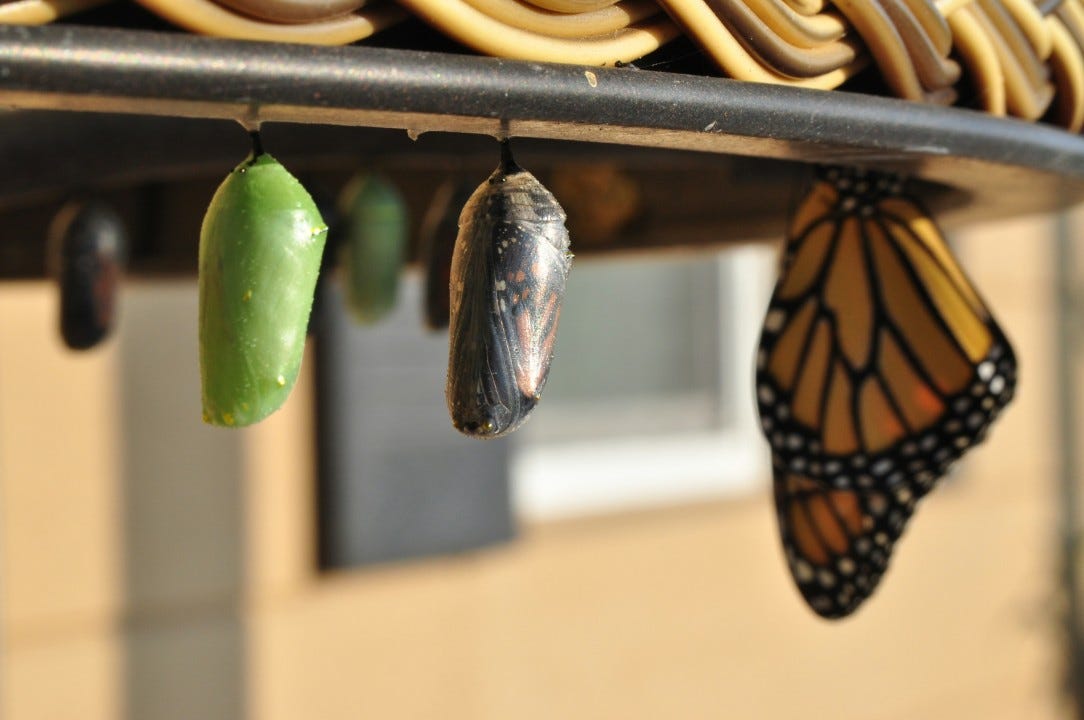Senior to Staff Engineer: 3 Years of Wisdom from My Engineering Director
3 Years of Advice in 7 Lessons
My director, Wouter de Bie is taking some much needed time off.
After 3+ years working together, here are 7 key lessons I've learned from him as he helped me grow from Senior to Staff.
These are direct quotes from my 1:1 meeting notes. Side note, I highly encourage you to take notes in your 1:1s, the value will compound over time.
"What are we optimizing for?"
This is probably Wouter's most impactful lesson for me.
I use our 1:1s to clarify my proposed priorities, and this question works wonders both on a daily basis and at a macro level.
It helps me identify what's truly important.
Are we optimizing for performance?
User experience?
Reliability?
When facing a decision or designing a solution, explicitly stating what you're optimizing for helps in making trade-offs and ensures that the team is aligned on priorities. It also helps me prioritize my tasks day-to-day.
When I know what’s important, I know how to say no.
"Consent vs consensus"
As I grew from Senior to Staff, I found myself with more opportunities to lead people and influence without authority.
On several cross-team projects, I struggled to align stakeholders and individual contributors. That's when my director emphasized aiming for consent in decision-making rather than trying to achieve full consensus.
Aiming for consent meant most people were either on board or at least indifferent.
Rather than getting everyone to agree, we reduced dissent to "I don't object, even if I have a different opinion of what's best." When leading a team or making decisions, I've learned to aim for consent rather than unanimous agreement.
I do my best to ensure all voices are heard, but I'm prepared to move forward if there are no strong objections, even if not everyone is entirely convinced.
Moving a project forward effectively requires constant balance here.
"Create an environment where delivery happens"
This was Wouter’s guiding principle and goal as a director.
He often spoke about the "three pieces of delivery":
Timeliness
Quality
Sustainability
Creating an environment for delivery involves balancing these three elements.
It's about setting up processes, culture, and practices that enable consistent, high-quality output. As a senior/Staff engineer, I've learned to focus on removing obstacles for myself and my team.
This might involve improving processes, advocating for necessary resources, or mentoring team members.
I always consider the balance between getting things done quickly and maintaining long-term quality.
"Be bold"
This was my director's advice for career progression and taking on new challenges.
I was constantly encouraged to take risks and try things.
Some things failed (like my attempt at diagrams as code).
But others succeeded:
Hosting an internal company podcast
Driving the migration to a Lakehouse data architecture
Getting my first external Conference talk accepted (Staff Plus NY 2024)
I've learned not to wait for opportunities to be given to me - instead, I try to create them.
I propose new projects, volunteer for challenging tasks, and proactively suggest improvements. If you see a problem - don’t let it slip, do something about it.
Even if that just means, have a conversation with someone.
It can be scary taking a risk or trying something new. But I’ve noticed at worst - most people are simply indifferent.
At best you succeed and find passionate supporters along the way.
"If someone else can do it - not unique to do - let someone else do it"
As you become more senior, your time becomes a huge bottleneck.
It's important to focus on tasks where you can provide unique value, rather than doing work that others could do.
I've learned to regularly assess my tasks. If I'm doing work that could be done by someone else, I consider delegating it. This not only allows me to focus on higher-impact work but also provides growth opportunities for others.
This echoes advice I've read in Will Larson’s and Tany Reilly’s books on being a Staff Engineer. If someone else can grow from this work, see if they want to take it on.
It provides an avenue for you to mentor others as well.
"Feedback is a gift"
I'm grateful for the courage it takes to give good feedback.
But I’ve learned I don't have to use it.
Viewing feedback as a gift encourages a positive attitude towards criticism and helps in continuous improvement. It also helps prevent you from over-calibrating.
As with most things in life, ‘take what is useful and discard the rest.’
"Stop caring [about performance] but be self-reflective on occasion"
After being promoted to Staff, imposter syndrome and some stress around performance crept in.
My director advised that at senior levels, immediate feedback on performance is less frequent. Instead of constantly worrying about how I'm doing, it's more productive to periodically reflect on my impact and contributions. And assume everything is fine unless you hear something.
I use quarterly OKR season to reflect on my impact and assess upcoming priorities.
Letting go of imposter syndrome and accepting hard to measure indicators of performance is a challenge at higher levels, but it seems to be getting easier with time.
Most importantly:
Thank you Wouter for helping me find the confidence to be myself.
It's been 3 wonderful years, I look forward to seeing what's next for you.


